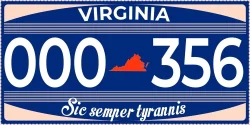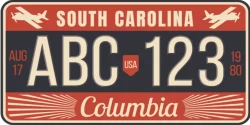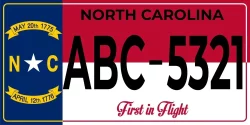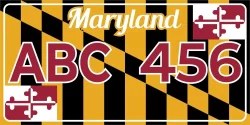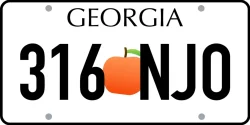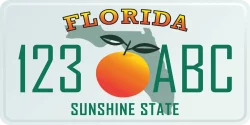Home » IRS Mileage Rates by State » West Virginia Mileage Rate
Last updated: October 22, 2025
In West Virginia’s varying landscapes — from mountainous terrains to rural roads — maintaining records can be challenging. Before diving into the specifics of the IRS Mileage Rate West Virginia, it’s crucial to understand why keeping an accurate mileage log is so important.
This post explores the 2025 mileage rates, state-specific reimbursement rules, deduction potentials, and innovative solutions by MileageWise that simplify mileage logging in West Virginia.

Table of Contents
Summary
- 2025 IRS Mileage Rates: $0.70/mi (business), $0.21/mi (medical/military moving), $0.14/mi (charitable).
- West Virginia Deduction Potential: Long trips like Morgantown–Huntington or Parkersburg–Wheeling can quickly add up to significant tax-deductible mileage.
- Employer Reimbursement Law: West Virginia requires state employers to reimburse employees for mileage (private employers are not required).
- MileageWise Solution: Utilizing the Google Maps Timeline import to create IRS-compliant mileage logs with ease.
IRS Mileage Rate West Virginia: Exploring Deduction Potential
Charleston → Huntington (53 mi)
Huntington → Morgantown (208 mi)
Morgantown → Charleston (156 mi)
Total miles: 417 miles
Deduction: 417 × $0.70 = $291.90
Wheeling → Clarksburg (106 mi)
Clarksburg → Fairmont (23 mi)
Fairmont → Wheeling (95 mi)
Total miles: 224 miles
Deduction: 224 × $0.70 = $156.80
State-Specific Reimbursement Rules You Should Know
In West Virginia, private employers are not required to reimburse mileage for business travel, though state employees are entitled to reimbursement. The IRS has set the 2025 standard business mileage rate at $0.70 per mile, which state employees must receive, while private employers have more flexibility. Although not mandatory, reimbursing mileage can help avoid wage reductions below the state’s minimum wage. Additionally, private businesses must reimburse injured workers for travel expenses related to medical treatment, as per the Workers’ Compensation Act.
Note, tolls and other fees separate from mileage reimbursements.
This overview is informational and should not be construed as legal advice; consult a tax professional for personalized guidance. For more detailed rules, visit our IRS Mileage Rates information page.
2025 Mileage Rate
- Business Mileage Rate: $0.70 per mile. Covers vehicle expenses when driving for business.
- Medical/Military Moving Mileage Rate: $0.21 per mile. Applies to medical visits and military relocations.
- Charitable Mileage Rate: $0.14 per mile. For driving on behalf of qualifying charities.
The Full Potential of Your Business Mileage Deduction in West Virginia
| Route (one-way) | Approx. miles | 2025 value |
|---|---|---|
| Huntington → Belle | 60 mi | $42.00 (RT $84.00) |
| Parkersburg → Wallace | 90 mi | $63.00 (RT $126.00) |
| Beckley → Sutton | 70 mi | $49.00 (RT $98.00) |
| Fairmont → Clarksburg | 25 mi | $17.50 (RT $35.00) |
| Martinsburg → Fort Ashby | 75 mi | $52.50 (RT $105.00) |
| Weirton → Moundsville | 45 mi | $31.50 (RT $63.00) |
| Huntington → Charleston | 55 mi | $38.50 (RT $77.00) |
| Parkersburg → Wheeling | 100 mi | $70.00 (RT $140.00) |
| West Union → Flatwoods | 85 mi | $59.50 (RT $119.00) |
| Bluefield → Hillsboro | 110 mi | $77.00 (RT $154.00) |
Calculations use the 2025 business rate of $0.70/mi.
Regions with Different Driving Challenges in West Virginia
- The Eastern Panhandle features winding Appalachian foothills and seasonal fog, complicating traction and visibility.
- The Central region, which includes Charleston, grapples with moderate urban congestion but benefits from well-maintained highways.
- The Southern coalfields region experiences rugged terrain, sharp elevation changes, and occasional road closures during winter months. These factors can affect mileage accuracy and record keeping, making reliable tracking tools essential.
Mileage Reimbursement: Which Jobs Get the Most Out of It?
- Forestry workers
- Sales representatives
- Construction contractors
- Utility technicians
- Home healthcare providers
- Delivery drivers
- Real estate agents
- Social service coordinators

MileageWise: Optimized Solutions for All Your Driving Challenges
The varied terrain and seasonal weather patterns in West Virginia pose challenges for accurate mileage logging. The mountainous and rural roads can complicate remembering every trip detail, yet precise logging is crucial to maximize reimbursements and remain IRS-compliant.
Fortunately, MileageWise offers three tailored solutions to help West Virginia drivers:
1. Google Maps Timeline Import: Effortlessly Log Your Routes and Mileage
Automatically converts your Google Timeline data into IRS-proof mileage logs. Perfect when you have a comprehensive history recorded, even if you forgot to manually log trips amidst challenging driving conditions.
2. AI Wizard: Leverage Artificial Intelligence
Missed or incomplete Timeline data? The AI Wizard Mileage Log Generator reconstructs past drives based on your usual routes and your driving patterns, filling gaps with high accuracy. This technology adapts well for drivers in rural or mountainous areas.
3. Mileage Tracker App: Track, Manage, and Maximize Your Mileage Reimbursement on the Go
Designed for ongoing use, this ad-free Mileage Tracker App records your trips in real time, respects your device’s battery life, and delivers IRS-ready reports. It simplifies logging in West Virginia’s varying environments, letting you focus on the road instead of paperwork.
Quick Story: How a Forestry Worker Solved Mileage Logging Woes
Meet Jake, a forestry worker frequently traversing the rugged Monongahela National Forest. Despite his best intentions, Jake often forgot to manually log his daily trips amid long, muddy drives and irregular schedules. Using MileageWise’s Google Maps Timeline import feature, he effortlessly transformed his phone’s location history into a flawless mileage log, compliant with IRS standards. This saved him countless hours and ensured he captured every deductible mile despite the demanding terrain.
Conclusion
Tracking mileage in West Virginia presents unique obstacles, from steep hills in the east to rural isolation in the south. However, accurate mileage logs are the key to unlocking reimbursement and maximizing tax deductions.
By leveraging MileageWise’s solutions drivers across the state can simplify their tracking. Each tool addresses different needs, from fixing incomplete data to automating real-time logs:
- Google Maps Timeline Import: Easily import your driving history from Google Maps Timeline to automatically log and categorize your mileage.
- AI Wizard: The AI Wizard intelligently analyzes your driving patterns and suggests optimal routes, ensuring accurate and efficient mileage logging even if your Timeline is missing.
- Mobile Mileage Tracker: With the MileageWise Mobile App, you can quickly log and manage your trips, track your mileage.
With the right technology, keeping an IRS-compliant log is less daunting, saving time and protecting drivers during tax season or audits. For West Virginia drivers, embracing these solutions turns the challenge of mileage tracking into an opportunity for savings and peace of mind.
AI Logs & Google Timeline Import
Try MileageWise for free for 14 days. No credit card required!
FAQ
Is mileage reimbursement mandatory for private employers in West Virginia?
No, private employers are not required by law to reimburse mileage for business use, though state employees receive reimbursement at the IRS rate.
Does mileage reimbursement include tolls and parking fees?
No, tolls and parking are usually reimbursed separately and are not part of the per-mile rate.
Can MileageWise help if I lost my Google Maps Timeline history?
Yes, MileageWise’s AI Wizard Mileage Log Generator can reconstruct missing trips based on your typical routes and driving habits.
Are the 2025 IRS mileage rates the same for medical/moving and charitable purpose?
No, they are not. The standard rate for medical/moving is $0.21 per mile, while for charitable purposes, it is $0.14 per mile.
What occupations commonly benefit from mileage reimbursement in West Virginia?
Jobs like forestry workers, sales reps, healthcare providers, construction contractors, and delivery drivers often get the most benefit.



